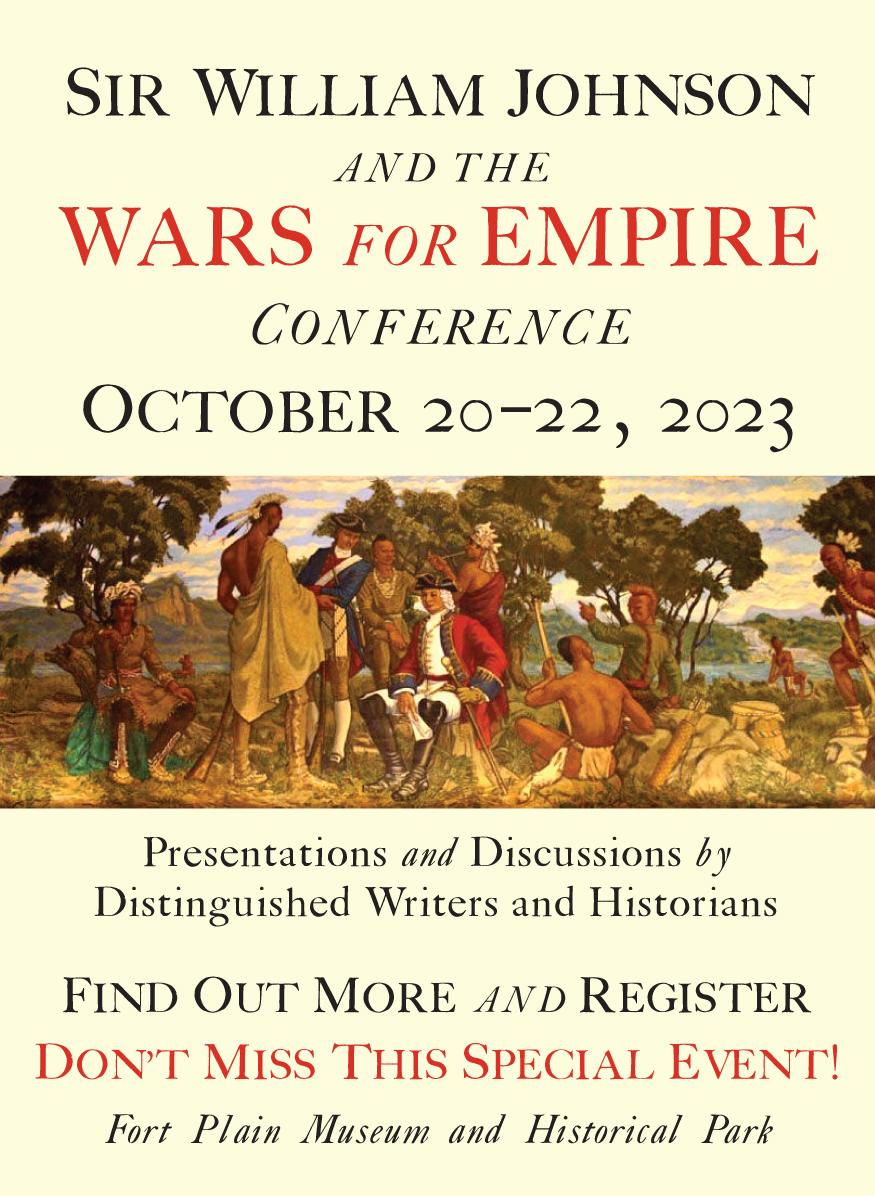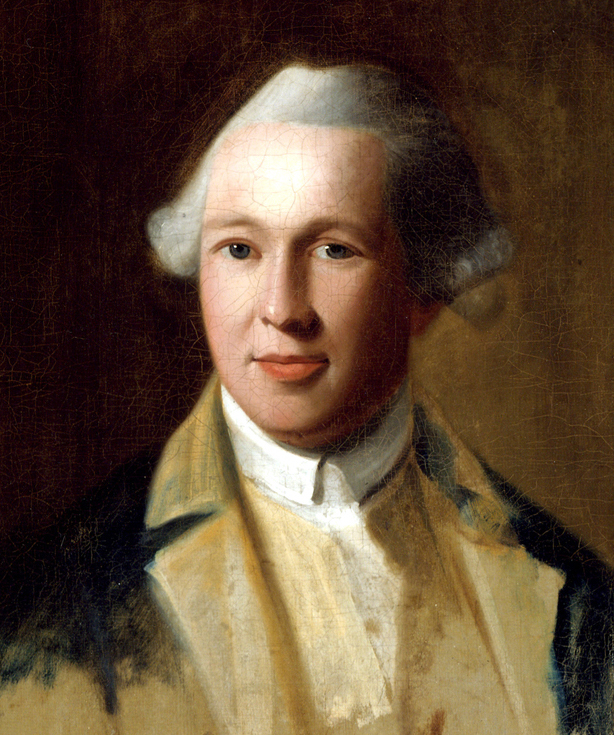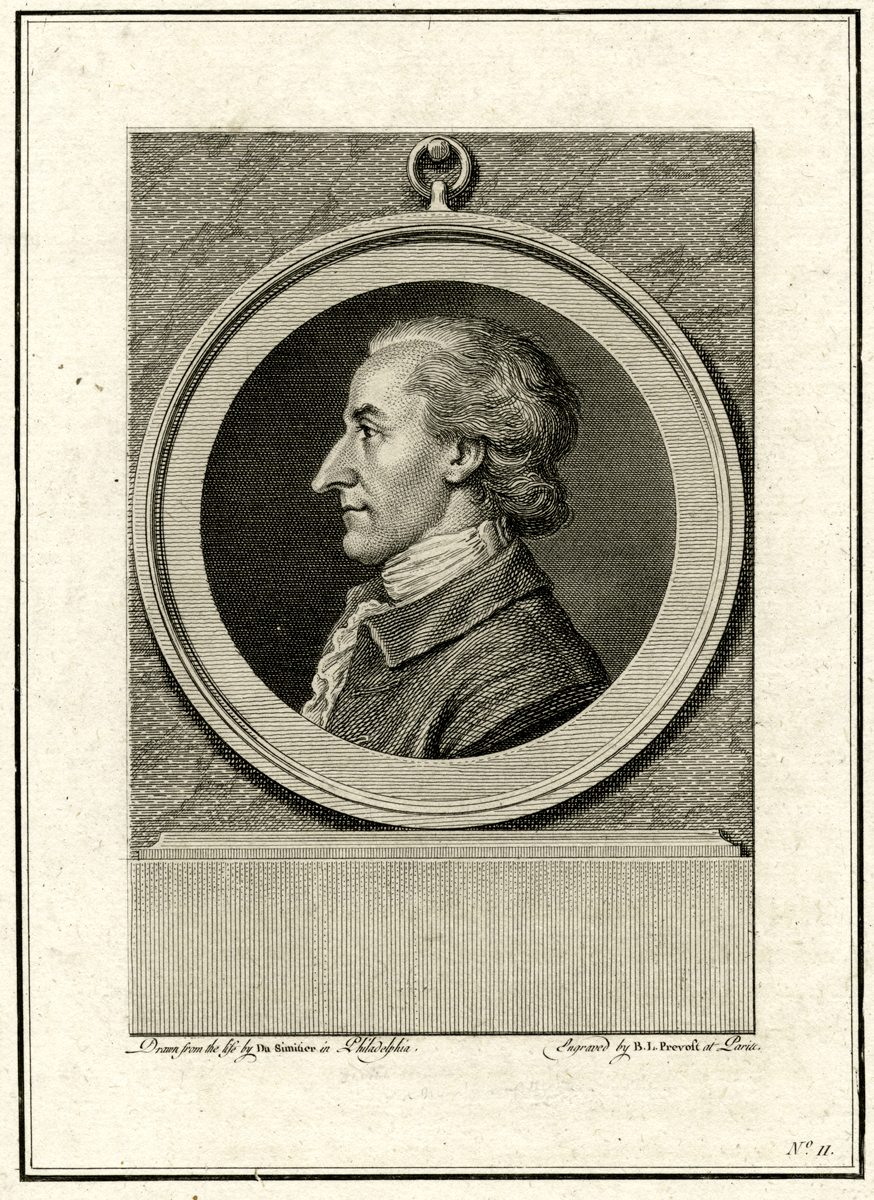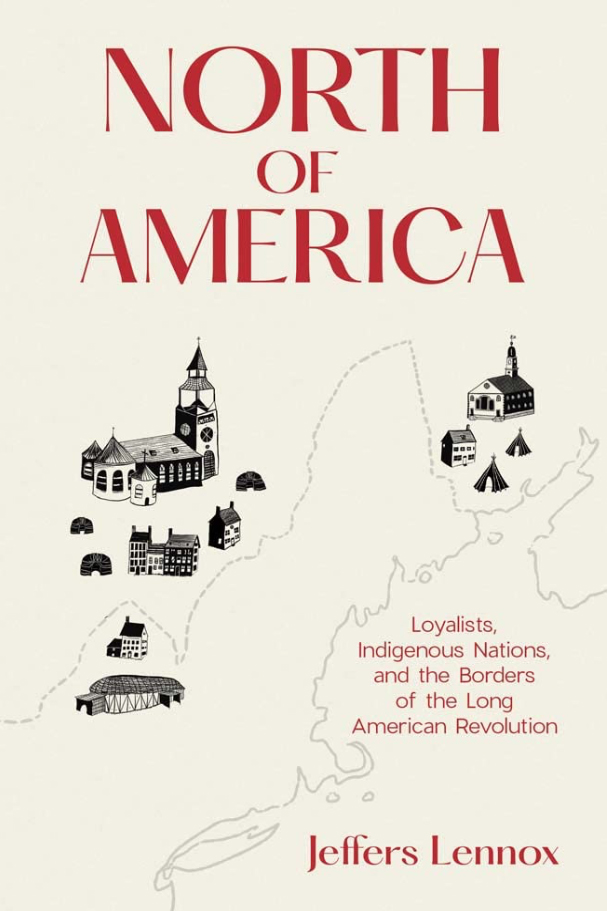In June 1780, Gen. George Washington told a lie. In fact, he planned a major deception. But as it was intended to deceive the British high command during the midst of the Revolutionary War, most Americans would likely forgive him. General Washington, with the aid of Major General Lafayette, wanted the British to believe that the French army under the command of Lieutenant General Rochambeau, soon expected to arrive in North America, was intended to help the Americans liberate Canada from the British yoke.
Washington and Lafayette designed a proclamation that they planned to have printed in Philadelphia. “We talked of a Proclamation to the Canadians,” Washington wrote to Lafayette in May, “If it is not already done, I think it ought not to be delayed. It should be in your own name, and have as much as possible an air of probability.” Washington wanted to use the document (to be written in French) to propagate an elaborate ruse. The proclamation, the American commander wrote, “should contain an animating invitation [to the Canadians] to arrange themselves under the allied banners. … you should hold yourself up as a French and American officer charged both by the King of France and by Congress with a commission to address them upon the occasion. It may indeed be well to throw out an idea that you are to command the corps of American troops destined to cooperate with the French armament. The more mystery in this business the better. It will get out and it ought to seem to be against our intention.”[1]
In late May Lafayette was busy drafting the proclamation. He explained to the Chevalier de La Luzerne, French minister in Philadelphia, who was to be in on the secret of the deception, that the purpose of the missive was to “mislead the enemy” on the aim of the Continental army’s joint operations with Rochambeau’s force. “This document will be printed in the greatest secrecy, but we shall take care to pass it on to New York,” he explained. (British headquarters in North America was located in New York City.) Once the French army actually arrived, the documents would be “thrown in the fire.”[2] The whole purpose was for the “secret” printing of the document, and it contents, to leak out in Philadelphia and make its way to Gen. Henry Clinton, the British commander in chief, who would then hopefully direct his efforts to defending that province instead of Washington’s real objective, New York City. Lafayette even asked La Luzerne for a stamp with the arms of Louis XVI, King of France. If he could place the king’s arms on the proclamation “it could help to deceive the enemy’s spies even more.”[3]
By early June, Lafayette had a draft of the proclamation finished, and Washington forwarded it to the military commander in Philadelphia. The chief Continental officer in that city at the time happened to be Maj. Gen. Benedict Arnold. On the 4th of June, Washington wrote to Major General Arnold from his headquarters at Morristown, N.J.: “Dear Sir … You will be pleased to put this into the hands of a printer whose secrecy and discretion may be depended on and desire him to strike off a proof sheet with the utmost dispatch … The importance of this Business will sufficiently impress you with the necessity of transacting it with every possible degree of caution.”[4] Although the American commander had no inkling at this time that Arnold was a traitor, his caution in not revealing the “secret” led Arnold to believe the proclamation was genuine. In a few days, Arnold, after some difficulty finding a printer who could be trusted, had a proof sheet of the proclamation printed and sent it to Washington’s headquarters for final corrections. At the end of June, the American commander returned the proof sheet, with corrections (presumably done by Lafayette) to the printer.[5]
Arnold had been in communication with Maj. John André, Clinton’s adjutant general, for over a year. Arnold sent his letters to André through a system of intermediaries. Loyalist Joseph Stansbury acted as Arnold’s chief contact in Philadelphia, and the Loyalist Rev. Jonathan Odell received them in in New York City for André. While André was with Clinton on an expedition to capture Charleston, South Carolina, in the spring of 1780, Capt. George Beckwith, aide to the acting commander in New York City, received Arnold’s missives.[6]
Arnold, in addition to having the proof struck, immediately advised Beckwith of the proclamation and sent him the text of the document. On June 7, Arnold, using his code name “Mr. Moore” wrote the British captain (via Stansbury): “I have received from The Commander-in-Chief a Proclamation in order to have a number of Copies printed, the purport of which, will be transmitted to you by J:S: [Stansbury] to whom I have communicated it. … The American Army intended to cooperate with the French will probably go up Connecticut River to Number Four and cross the Country to St Johns.”[7]
Other elements of the deception transpired just as Washington and Lafayette hoped (though they had no idea Arnold would be the vehicle). The French ambassador played his role perfectly. Arnold wrote Beckwith: “The Minister of France this day assured me that the French Troops destined for Canada amount to Eight Thousand.”[8] Stansbury converted Lafayette’s proclamation to code and sent it, with Arnold’s letter, to Beckwith, commenting that the proclamation “must be a profound secret.”[9]
Arnold thus unwittingly served Washington’s purpose: to get the proclamation into the hands of the British commander in chief and create the impression that the expected French army was intended for an attack on Canada. Thanks to Arnold’s treachery, Washington’s deception had succeeded.
[1] Washington to Lafayette, May 19, 1780, U.S. Library of Congress, George Washington Papers (DLC:GW).
[2] Lafayette to the Chevalier de La Luzerne, May 25, 1780, in Stanley J. Idzerda et al, eds., Lafayette in the Age of the American Revolution Selected Letters and Papers, 1776-1790, 5 vols. (Ithaca and London: Cornell University Press, 1977-83), 3:35.
[3] Ibid. Idzerda notes that although La Luzerne agreed to the request, the king’s arms did not appear on the printed proclamation.
[4] Washington to Arnold, June 4, DLC:GW. The enclosed draft of this proclamation has not been identified.
[5] Arnold to Washington, June 7, 1780, Pennsylvania Historical Society: Gratz Collection. The corrected proof sheet that Washington sent to the printer has not been identified; but there is a hand-corrected proof sheet of the proclamation (in French) in the Nourse Family Papers (3490-a) at University of Virginia’s special collections library.
[6] For more on this chain of communication, see Carl Van Doren, Secret History of the American Revolution: An Account of the Conspiracies of Benedict Arnold and Numerous Others drawn from the Secret Service Papers of the British Headquarters in North America now for the first time examined and made public (New York: The Viking Press, 1941), 196-201.
[7] Arnold to Beckwith, June 7, 1780, in Van Doren, 459-60.
[8] Ibid.
[9] Ibid.














8 Comments
As I note in my book, Washington was a master of both tactical and strategic deception. And, it was his institutionalized “compartmentation” which enabled him to succeed. He intentionally spread false information among his own forces as well as protected his actual plans. He seldom gets the credit he deserves in his area of intelligence activities.
Did the British actually change campaign plans or troop disposition as a result of this deception? It would be a very powerful story if the British moved troops to protect Canada, leaving fewer for their Southern Strategy.
I had never heard of this deception, and I, too, would like to know this answer, as it’s the missing piece of the story to my mind.
Good Question, I was thinking the same. Hopefully the the author will let us know
Great article!
I wonder, too. It would require direct evidence to assert, which would be a rare find – since correspondence between Clinton and his field officers was regularly intercepted it would have been almost unthinkable for any of them to have revealed this sort intelligence or its source in dispatches. Though I’ve yet to research for a reference in British command correspondence that directly asserts an influence of Washington and Lafayette’s Canadian deception, there are references in the Clinton-Cornwallis papers which suggest troop dispositions were altered, or planned excursions curtailed, as a result of British concern over the potential employment of the French troops.
With considerable experience in this arena, it is usually difficult to assess whether an enemy reaction is in response to your deception, a response to other information, or their own deliberate design. We might presume that Washington’s intent was to cause the British to diminish support for their Southern Campaign by increasing troop strength in Canada, denying reinforcements, or drawing off troop strength in the detriment of their Carolina operations. The best deceptions are those which reinforce a target’s already existing suspicion, whereby reinforcement of that suspicion creates a perception which leads the target to act in a manner favorable to your own designs. Of course, military pragmatism forced Clinton to anticipate a potential mission for 8,000 newly-arrived French troops who were otherwise unemployed. Washington’s goal would have been to provide information suggesting French troop employment to cause the British to squander a protective counter-force. Thus drawing off troops from the Southern Campaign or even, to follow a grander military scheme, cause Clinton to establish a separate force which might have been vulnerable to an Allied attack, or left New York undermanned: divided for conquest. Although that didn’t happen, there is evidence that Clinton altered troop dispositions out of respect for the French contingent.
Arnold supplied the British warning of the French invasion of Canada in early June of 1780. At that time, General Sir Clinton (with Intelligence Chief, John Andre in tow) was deciding troop disposition following the surrender of Charleston. Clinton took Charleston with just over 11,000 troops, but in early June 1780 returned to New York City with a substantial number of them. Over the course of late June-July 1780 he issued orders which reduced Cornwallis’ army to around 5,000 troops, a reduction which seems contradictory to Clinton’s stated commitment to the Southern Campaign as his primary effort. Following Arnold’s defection in September, when the British would have had a chance to directly ascertain his belief in the proposed French Invasion of Canada, Clinton ordered Leslie’s raid on Norfolk and the lower Chesapeake curtailed, declined to reinforce Cornwallis in the Carolinas, and ordered further regimental re-arrangements which resulted in strengthening of the New York City-based army. Of course, stay with me, with Arnold’s defection Clinton knew that Washington knew that Arnold would have spilled the beans on the Canadian invasion plan. That fact, and the change of season, led Clinton to believe that the French troops in Rhode Island were not mounting a winter campaign, and only then did he commit a fresh force, under Arnold, to once again raid Virginia. A statement evidencing this can be readily seen in Clinton’s letter to Cornwallis of 13 Dec, 1780 (found on pages 310-311 of the “Clinton-Cornwallis Controversy”; https://archive.org/stream/campaigninvirgin01stevrich#page/310/mode/2up ).
Though the British did alter troop disposition out of respect for the French contingent, without finding direct evidence we likely won’t be able to credit Clinton’s decisions to Washington’s plan; typical of any military deception. Equally we cannot discount even a small effect. If the deception caused Clinton to remove just a single regiment from the Southern Campaign, it likely altered the outcome. The margins were very narrow in the Carolina’s: an additional regiment of regulars would have altered the effects of British Loyalist recruiting, the result at Kings Mountain, Cowpens, or the Race to the Dan.
Hope Mr. Huggins comments!
Well written and enjoyable piece of history there. Nine times out of ten in any Washington story I find a questionable conclusion or a slightly askew fact but not in this one. Very well done.
I was wondering what area was referred to as “Canada”? It must be Quebec?
Thanks to everyone for the comments. On the question of whether the British changed troop dispositions as a result of Washington’s deception: British general Sir Henry Clinton did not detach troops to Canada because very shortly after Stansbury sent in Arnold’s letter of June 7 with the proclamation, Arnold sent Beckwith a letter, dated June 12, reporting that the French naval squadron and Rochambeau’s army “are expected at Rhode Island in two or three weeks to act under General Washington.” Still affected by the false proclamation, he told Beckwith the French would embark “four thousand Rebels” and proceed up the St. Lawrence River to Quebec, while Lafayette “with two or three thousand” would go up the Connecticut River to St. John’s and Montreal (Carl Van Doren, Secret History of the American Revolution [New York, 1941], 460). Clinton received this missive immediately after his arrival in New York from Charleston, S.C., and it confirmed intelligence he already had from British secretary of state Lord George Germain about the French force. Believing, then, that the French would “touch” at Rhode Island before going to Canada, the British general formulated a plan to attack them “immediately upon their landing there [Rhode Island].” (William B. Willcox, ed., The American Rebellion: Sir Henry Clinton’s Narrative of His Campaigns, 1775-1782 [New Haven, 1954], 193, 195). Thus, he held his all troops in New York rather than detach a force to reinforce Canada. (Clinton embarked an army for his planned attack, but had to give it up because of difficulties coordinating with the navy and a march by Washington that threatened New York).